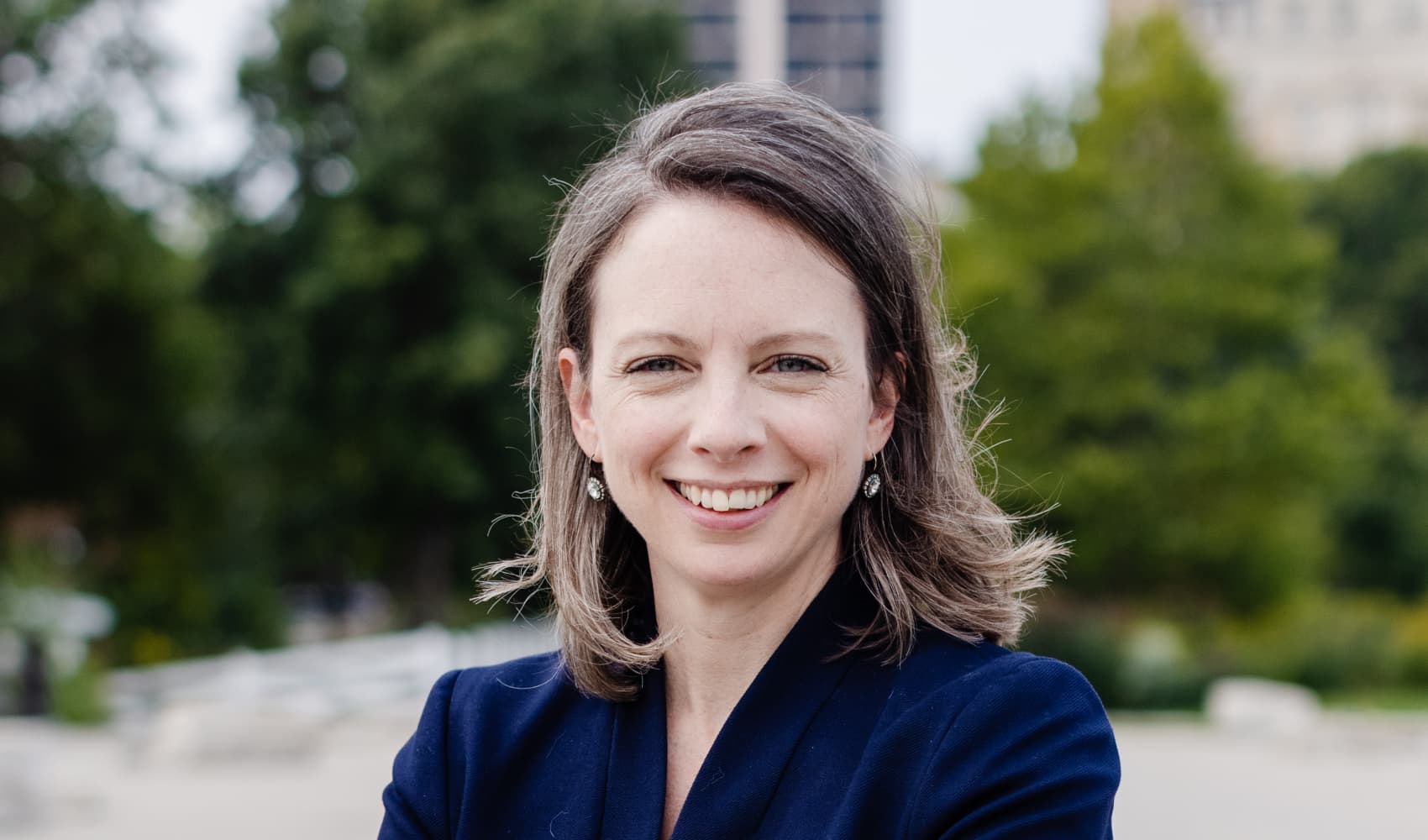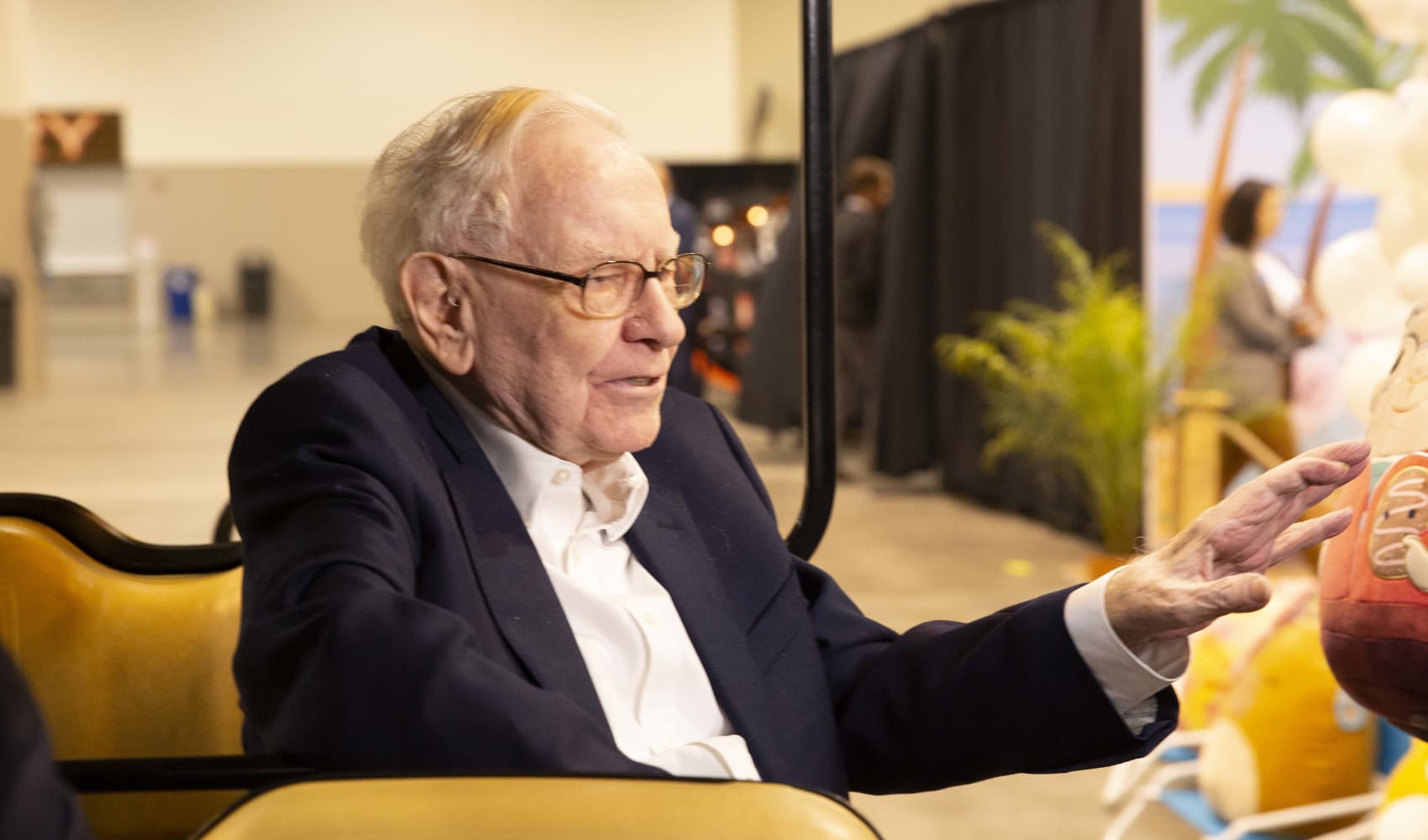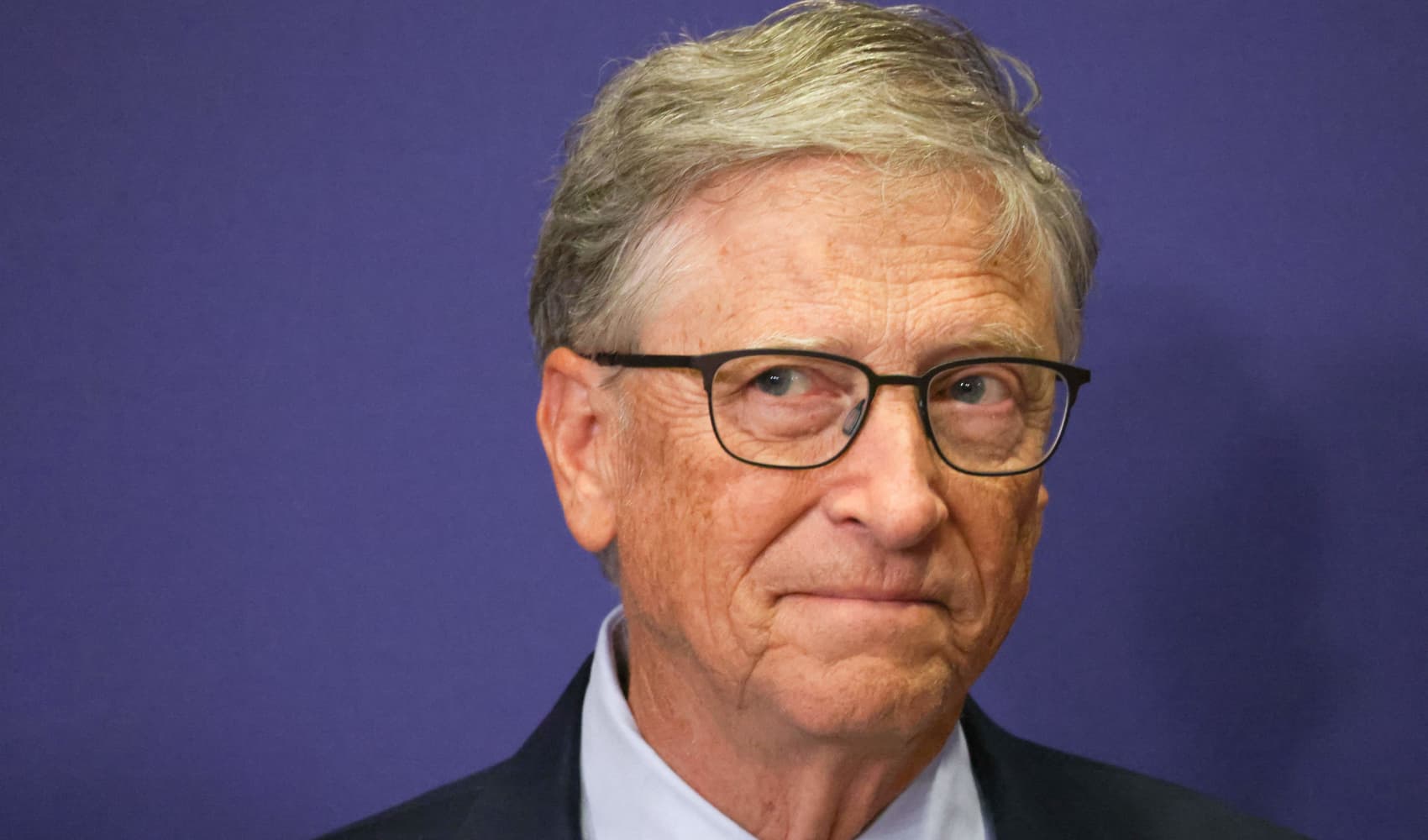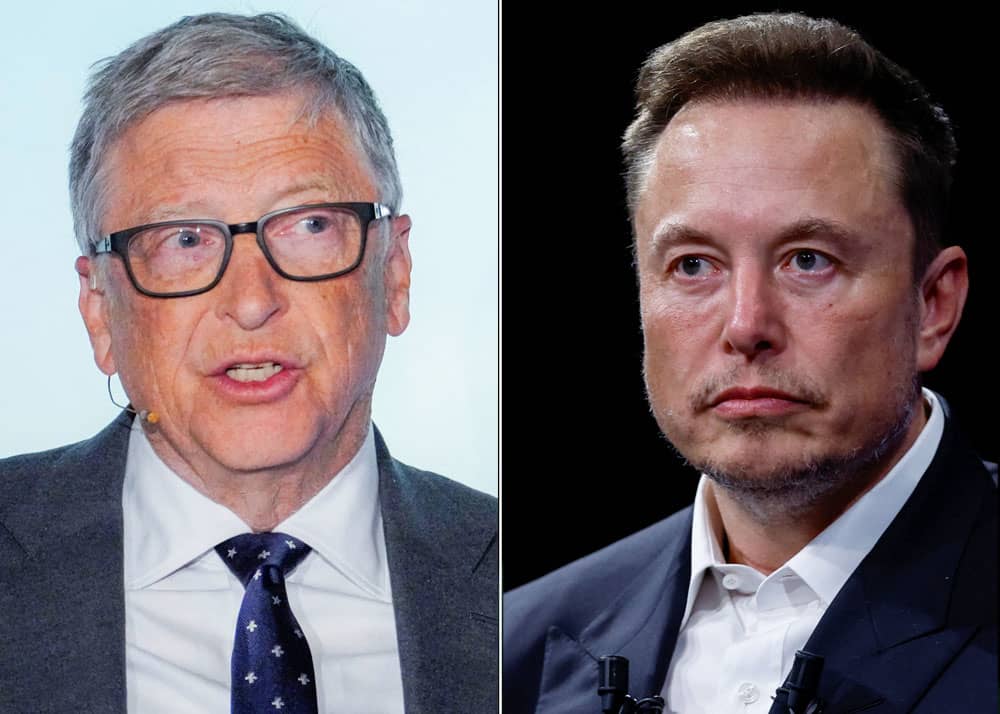Lukas Walton Names New CIO: Impact Investing Future?
Lukas Walton's Builders Vision: A New CIO Charts the Course
Introduction: A Billionaire's Vision, A New Leader
Ever wondered how the ultra-rich manage their fortunes, and more importantly, how they use that wealth to shape the world? Well, we're diving into the world of Lukas Walton, the Walmart heir, and his family office, Builders Vision. And guess what? There's a new captain at the helm! Noelle Laing has been appointed as the new chief investment officer (CIO), marking a significant step for both the firm and the growing presence of women in high finance.
Builders Vision: Investing in a Better Future
The Mission: Beyond Profit
Builders Vision isn't just about making money; it's about making a difference. They're tackling some of the biggest challenges facing our planet, using a blend of philanthropy and impact investing. Think of it as using your wallet to vote for the kind of world you want to live in. Their focus areas are pretty crucial: clean energy, food sustainability, and ocean health. Pretty important stuff, right?
The Philosophy: Impact Investing in Action
What exactly *is* impact investing? It's all about investing in companies, organizations, and funds with the intention of generating a measurable, beneficial social or environmental impact alongside a financial return. It's not just about donating; it's about making smart investments that also help solve global problems. Builders Vision is putting this philosophy into practice in a big way.
Noelle Laing: A Rising Star Takes the Reins
From Philanthropy to CIO: A Natural Progression
Before becoming CIO, Laing was already deeply involved with Builders Vision, managing their impressive $1.7 billion philanthropy arm. That's a hefty responsibility! Her experience in guiding charitable investments makes her uniquely positioned to lead the entire investment strategy. It's like promoting someone from running the charity wing to leading the entire company – a testament to her leadership and vision.
Breaking Barriers: Women in Finance
The world of high finance has historically been dominated by men. But that's changing! Laing is part of a growing cohort of women money managers who are proving their mettle and shattering glass ceilings. It's refreshing to see more diversity in leadership roles, bringing new perspectives and approaches to investment strategies. Laing's appointment is a win for women in finance everywhere.
The CIO's Role: Navigating Complex Investments
Strategic Asset Allocation: Where the Money Goes
As CIO, Laing will be responsible for overseeing all of Builders Vision's investments, from traditional assets like stocks and bonds to more specialized areas like venture capital and private equity. A key part of her job will be determining the optimal asset allocation – figuring out the right mix of investments to achieve the firm's financial and impact goals. This requires a deep understanding of global markets and a keen eye for emerging opportunities.
Risk Management: Protecting the Portfolio
Investing always involves risk, and managing that risk is a crucial part of the CIO's role. Laing will need to carefully assess the potential downsides of each investment and put strategies in place to mitigate those risks. Think of it as building a financial fortress to protect the family's wealth while still pursuing ambitious goals.
Clean Energy: Powering a Sustainable Future
Investing in Renewables: Solar, Wind, and More
Clean energy is a major focus for Builders Vision. They're investing in renewable energy sources like solar, wind, and hydro power, as well as companies developing innovative technologies to reduce carbon emissions. This isn't just about generating electricity; it's about creating a sustainable energy system for future generations.
The Role of Technology: Innovation is Key
Technological advancements are playing a crucial role in the clean energy transition. Builders Vision is likely investing in companies developing new battery technologies, energy storage solutions, and smart grid technologies. These innovations are essential for making renewable energy more reliable and affordable.
Food Sustainability: Feeding the World Responsibly
Sustainable Agriculture: Farming for the Future
The way we produce food has a huge impact on the environment. Builders Vision is investing in sustainable agriculture practices that reduce the use of pesticides, conserve water, and improve soil health. This includes supporting farmers who are adopting regenerative agriculture techniques, which can help sequester carbon in the soil.
Reducing Food Waste: A Key to Efficiency
A significant portion of the food we produce ends up going to waste. Builders Vision is likely investing in companies that are developing innovative solutions to reduce food waste, from improved packaging to better supply chain management. Reducing food waste is a win-win: it saves resources and reduces greenhouse gas emissions.
Ocean Health: Protecting Our Blue Planet
Combating Pollution: Cleaning Up Our Seas
Our oceans are under threat from pollution, overfishing, and climate change. Builders Vision is investing in solutions to address these challenges, such as technologies to remove plastic from the ocean and support sustainable fishing practices. Protecting our oceans is crucial for maintaining biodiversity and ensuring the health of our planet.
Supporting Marine Conservation: Protecting Ecosystems
Builders Vision is also likely supporting marine conservation efforts, such as protecting coral reefs and restoring coastal wetlands. These ecosystems provide vital habitats for marine life and play a crucial role in regulating the climate.
The Family Office Landscape: A Growing Trend
The Rise of Family Offices: Managing Generational Wealth
Family offices are becoming increasingly common as families accumulate significant wealth. These offices provide a range of services, including investment management, financial planning, and philanthropic advising. They're essentially private wealth management firms catering to the unique needs of wealthy families.
Impact Investing in Family Offices: A Shift in Values
More and more family offices are incorporating impact investing into their strategies. This reflects a growing desire among wealthy families to use their wealth to make a positive difference in the world. Builders Vision is at the forefront of this trend.
The Walton Family Legacy: From Retail to Impact
Walmart's Influence: A Retail Giant
The Walton family's wealth stems from Walmart, the world's largest retailer. Walmart has had a significant impact on the global economy, both positive and negative. Understanding this legacy is important for understanding the context of Builders Vision's work.
Beyond Retail: A Commitment to Sustainability
While Walmart has faced criticism for its environmental and social practices, the Walton family has also demonstrated a commitment to sustainability through their philanthropic and investment activities. Builders Vision represents a significant step in this direction.
Conclusion: A Vision for the Future
Noelle Laing's appointment as CIO of Builders Vision is more than just a personnel change; it's a sign of the times. It reflects the growing importance of impact investing, the increasing presence of women in finance, and the desire of wealthy families to use their resources to create a better future. Builders Vision's focus on clean energy, food sustainability, and ocean health addresses some of the most pressing challenges facing our planet, and Laing's leadership will be crucial in guiding the firm's investments towards these goals. Keep an eye on Builders Vision – they're shaping the future of impact investing.
Frequently Asked Questions (FAQ)
What exactly is a family office?
A family office is a private company that manages the investments and wealth of a single wealthy family. They provide a range of services, including investment management, financial planning, tax advice, and philanthropic advising.
What is impact investing?
Impact investing is investing in companies, organizations, and funds with the intention of generating a measurable, beneficial social or environmental impact alongside a financial return. It's about using investments to create positive change in the world.
Why is Builders Vision focused on clean energy, food sustainability, and ocean health?
These three areas represent some of the biggest challenges facing our planet. Clean energy is essential for combating climate change, food sustainability is crucial for feeding a growing population responsibly, and ocean health is vital for maintaining biodiversity and regulating the climate.
How does Builders Vision measure the impact of its investments?
Builders Vision likely uses a variety of metrics to measure the impact of its investments, such as reductions in carbon emissions, improvements in water quality, and increases in sustainable food production. They may also use frameworks like the Sustainable Development Goals (SDGs) to guide their impact measurement.
How can I get involved in impact investing?
There are many ways to get involved in impact investing, from investing in socially responsible mutual funds to supporting local businesses that are making a positive impact in your community. You can also research and invest in companies that are addressing social and environmental challenges.







